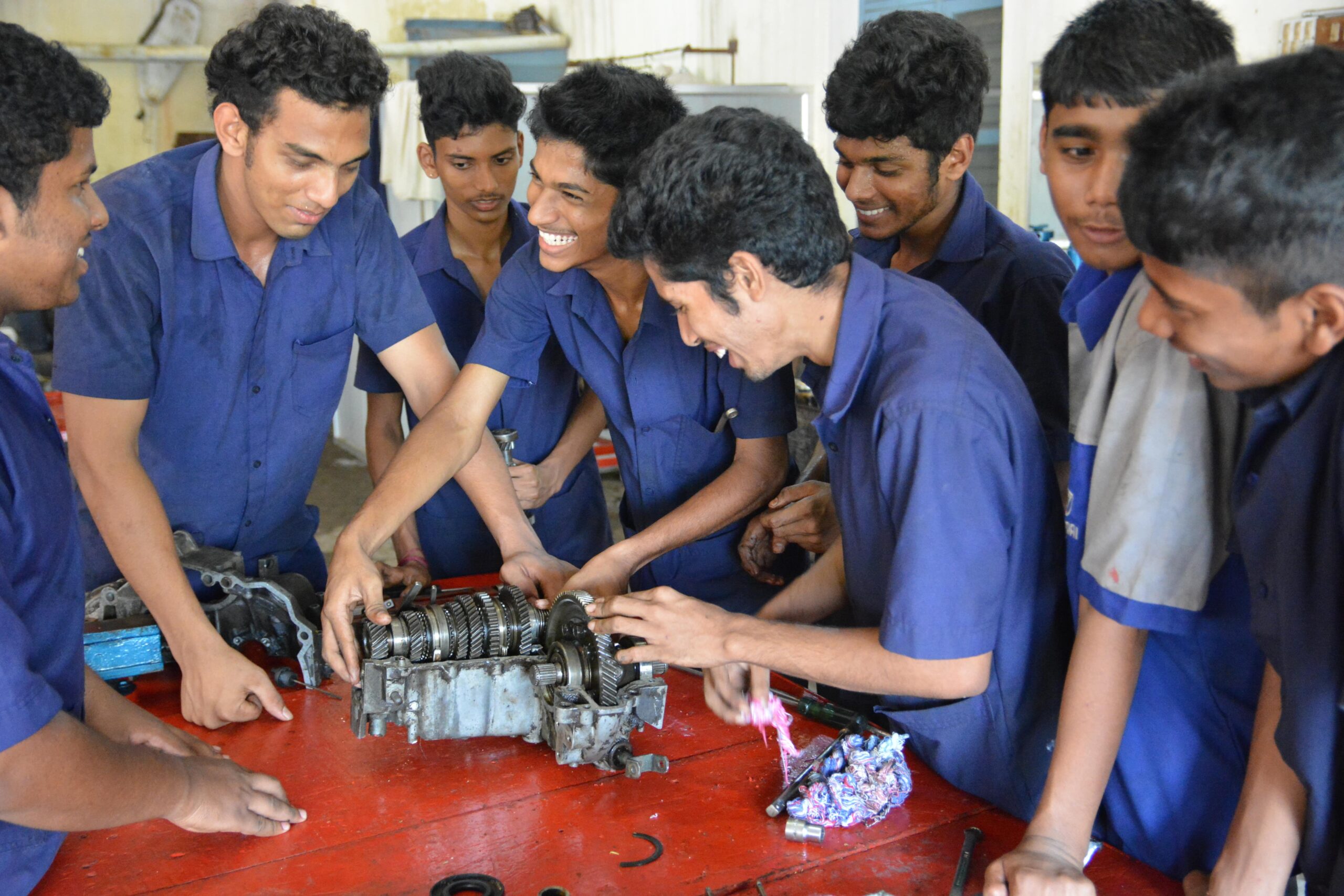In recent years, Technical and Vocational Education and Training (TVET) has gained significant recognition in India as a powerful tool to address unemployment, skill gaps, and promote inclusive economic growth. With the rapid expansion of the TVET sector, the role of Corporate Social Responsibility (CSR) in facilitating effective implementation has become more crucial than ever.
CSR has emerged as a powerful catalyst in addressing social issues and contributing to sustainable development. When it comes to TVET, CSR plays a vital role in several ways. Firstly, it provides financial resources to support the establishment and expansion of TVET institutions, ensuring access to quality training and infrastructure. Secondly, CSR initiatives can facilitate the development of curriculum and training programs aligned with industry needs, making TVET more relevant and responsive to the job market. Moreover, CSR efforts can promote industry-academia collaborations, fostering partnerships between TVET institutions and the private sector to enhance skill development and employment prospects.
Several exemplary CSR programs have made a significant impact in the field of TVET in India. Let’s explore some real-world examples:
Tata Motors’ Skill Development Program: Tata Motors, a leading automobile manufacturer in India, has implemented a robust CSR program focused on skill development. Through their “Skill Development Program,” they have established skill development centers across the country to provide vocational training to underprivileged youth. The training programs cover various trades such as automotive mechanics, welding, and electrical work, equipping individuals with industry-relevant skills and increasing their employability.
Infosys Foundation’s Campus Connect: Infosys Foundation, the philanthropic arm of Infosys, a prominent multinational technology company, has initiated the “Campus Connect” program. This program aims to bridge the gap between academia and industry by enhancing the employability of engineering graduates. Through partnerships with universities and colleges, Infosys Foundation provides faculty development programs, curriculum enhancements, and industry exposure for students, ensuring that their skills align with industry requirements.
Larsen & Toubro’s Project Samarth: Larsen & Toubro (L&T), a leading engineering and construction company, has initiated “Project Samarth” as part of its CSR efforts. This program focuses on skill development in construction trades. L&T partners with vocational training institutes and offers comprehensive training programs to empower individuals with skills in areas such as masonry, carpentry, plumbing, and electrical work. By equipping individuals with these in-demand skills, L&T contributes to the growth of the construction industry while providing employment opportunities.
Mahindra & Mahindra’s SMART: Mahindra & Mahindra, a renowned automotive manufacturer, has launched “SMART” (Skills for Market Training) as part of their CSR initiatives. This program aims to empower youth from rural areas by providing skill-based training in automotive repair and maintenance. Through partnerships with reputed training institutes, Mahindra & Mahindra offers comprehensive training programs that equip individuals with the necessary skills to enter the automotive industry and establish sustainable livelihoods.
NGOs as Effective Implementation Partners:
NGOs play a crucial role in driving the success of Corporate Social Responsibility (CSR) programs in India’s Technical and Vocational Education and Training (TVET) sector. With their grassroots presence, community networks, and expertise in development projects, NGOs serve as valuable partners for CSR initiatives.
One of the key strengths of NGOs is their deep understanding of local communities, their needs, and the challenges they face. This knowledge allows NGOs to design and implement TVET programs that address specific community requirements. By leveraging their on-the-ground presence, NGOs can identify target beneficiaries, assess skill gaps, and develop training programs that align with local contexts.
Additionally, NGOs have extensive community networks that enable effective program implementation. They can reach potential beneficiaries, create awareness about TVET opportunities, and encourage active participation. Through established relationships with community leaders and educational institutions, NGOs mobilize resources and support for TVET initiatives, maximizing program reach and impact.
NGOs bring valuable expertise to TVET implementation, including program design, curriculum development, and training methodologies. Their experience ensures well-structured and industry-relevant programs. NGOs also adapt training content to meet changing market needs, ensuring that skills taught remain in-demand and up-to-date.
Transparency and accountability are essential in CSR programs. NGOs excel in monitoring and evaluating project outcomes, ensuring effective utilization of CSR funds. Their ability to track progress, measure impact, and report outcomes maintains transparency in CSR investments. NGOs provide valuable feedback to partnering companies, enabling continuous improvement of CSR initiatives in the TVET sector.
NGOs possess the grassroots presence, community networks, and expertise necessary for successful CSR programs in India’s TVET sector. Their ability to design tailored programs, mobilize resources, and ensure transparency maximizes the impact of CSR investments. By partnering with NGOs, companies can achieve sustainable and inclusive skill development outcomes in TVET.
The effective implementation of TVET initiatives in India requires the concerted efforts of various stakeholders, and CSR has emerged as a vital partner in this endeavor. Through financial support, industry collaboration, and curriculum development, CSR initiatives can enhance the quality and relevance of TVET programs. Additionally, NGOs serve as effective implementation partners by leveraging their local knowledge, networks, and monitoring capabilities. By harnessing the potential of CSR and forging strong partnerships, India can accelerate its journey towards a skilled and inclusive workforce, unlocking vast economic potential and paving the way for a brighter future.
